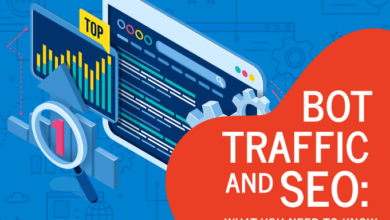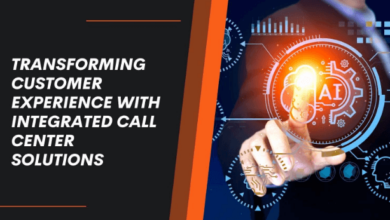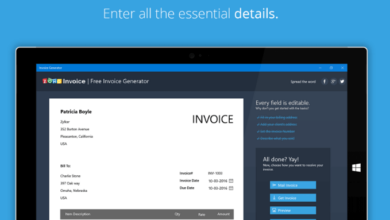Unleash Efficiency with Cloud Accounting in Singapore

In today’s fast-paced business landscape, staying ahead often requires embracing innovative solutions. Cloud accounting is one such technology revolutionizing the financial landscape in Singapore and beyond. In this article, we’ll explore what cloud accounting is, how it works, the myriad benefits it offers, key considerations before adopting it, and the industries that stand to gain the most from this transformative approach to accounting.
What is Cloud Accounting?
Cloud accounting, also known as online accounting, refers to the practice of using internet-based software to manage financial transactions, recordkeeping, and other accounting tasks. Unlike traditional accounting systems that rely on on-premises software, cloud accounting operates entirely in the digital realm, accessible from any device with an internet connection.
How Does Cloud Accounting Work?
Online Software: Cloud accounting platforms provide access to online accounting software that users can access through web browsers or mobile apps.
Data Storage: Financial data, transactions, and records are securely stored in the cloud, eliminating the need for physical storage servers or paper documents.
Real-Time Data Entry: Users can input financial data directly into the system, such as income, expenses, and invoices, ensuring that records are always up to date.
Automation: Many cloud accounting solutions offer automation features, such as bank feeds that automatically import transaction data, reducing manual data entry.
Accessibility: Authorized users can access the accounting system from anywhere with an internet connection, facilitating remote work and collaboration.
Data Security: Cloud accounting providers prioritize data security, implementing encryption and other measures to protect sensitive financial information.
Benefits of Cloud Accounting in Singapore
Accessibility: Cloud accounting provides real-time access to financial data, enabling businesses to make informed decisions, collaborate with stakeholders, and manage finances from anywhere in the world.
Cost Efficiency: Eliminating the need for physical servers and reducing IT maintenance costs can result in significant cost savings.
Automatic Updates: Cloud accounting software is regularly updated by the provider, ensuring that users always have access to the latest features and compliance requirements.
Data Security: Leading cloud accounting platforms invest heavily in security measures, often exceeding the security levels that many businesses can afford with on-premises solutions.
Scalability: Cloud accounting solutions can easily scale to accommodate business growth, making them suitable for businesses of all sizes.
Collaboration: Multiple users can collaborate on the same data simultaneously, streamlining teamwork among accountants, managers, and other stakeholders.
Time Savings: Automation features reduce the time spent on manual data entry, allowing accounting professionals to focus on higher-value tasks.
Data Backup: Cloud accounting systems typically provide automatic data backups, reducing the risk of data loss due to hardware failures or disasters.
Things to Consider Before Adopting Cloud Accounting
Data Security: While cloud providers prioritize security, it’s crucial to assess their security measures, encryption practices, and compliance certifications to ensure your data is adequately protected.
Integration: Consider whether the cloud accounting solution can seamlessly integrate with your existing software systems, such as inventory management or customer relationship management (CRM) tools.
Costs: Understand the pricing structure of the cloud accounting platform, including subscription fees, transaction fees, and any additional charges for advanced features.
User Training: Ensure that your team is adequately trained to use the cloud accounting software effectively, maximizing its benefits.
Data Ownership: Clarify data ownership and access rights in case you decide to switch providers or discontinue the service.
Compliance: Ensure that the chosen cloud accounting solution complies with Singaporean financial regulations and tax laws.
Read also: Exploring the World of Random Video Chat: Enriching Connections Across Boundaries
Industries That Benefit from Cloud Accounting
Small and Medium-Sized Enterprises (SMEs): SMEs often find cloud accounting solutions cost-effective and flexible, allowing them to manage finances efficiently without the need for significant IT infrastructure.
Retail and E-commerce: Businesses in the retail sector benefit from real-time inventory tracking, sales analysis, and integration with e-commerce platforms.
Service-Based Businesses: Service providers, such as consulting firms, benefit from cloud accounting’s project tracking capabilities, automated invoicing, and time tracking features.
Hospitality: Hotels, restaurants, and event venues can efficiently manage bookings, track revenue, and monitor expenses using cloud accounting.
Manufacturing: Manufacturers can use cloud accounting to track production costs, monitor supply chain activities, and manage inventory effectively.
Healthcare: Healthcare providers can benefit from the secure storage and accessibility of patient billing and financial data.
Nonprofits: Nonprofit organizations can utilize cloud accounting to manage donations, grants, and fundraising efforts efficiently while maintaining transparency and compliance.
Conclusion
Cloud accounting has transformed financial management in Singapore and around the world, offering businesses unprecedented accessibility, cost-efficiency, and automation. Before adopting cloud accounting, it’s crucial to consider factors like data security, integration capabilities, costs, and compliance. As the adoption of cloud accounting in Singapore continues to grow, industries of all sizes can harness its benefits to streamline operations, enhance decision-making, and stay competitive in an increasingly digital business environment.




